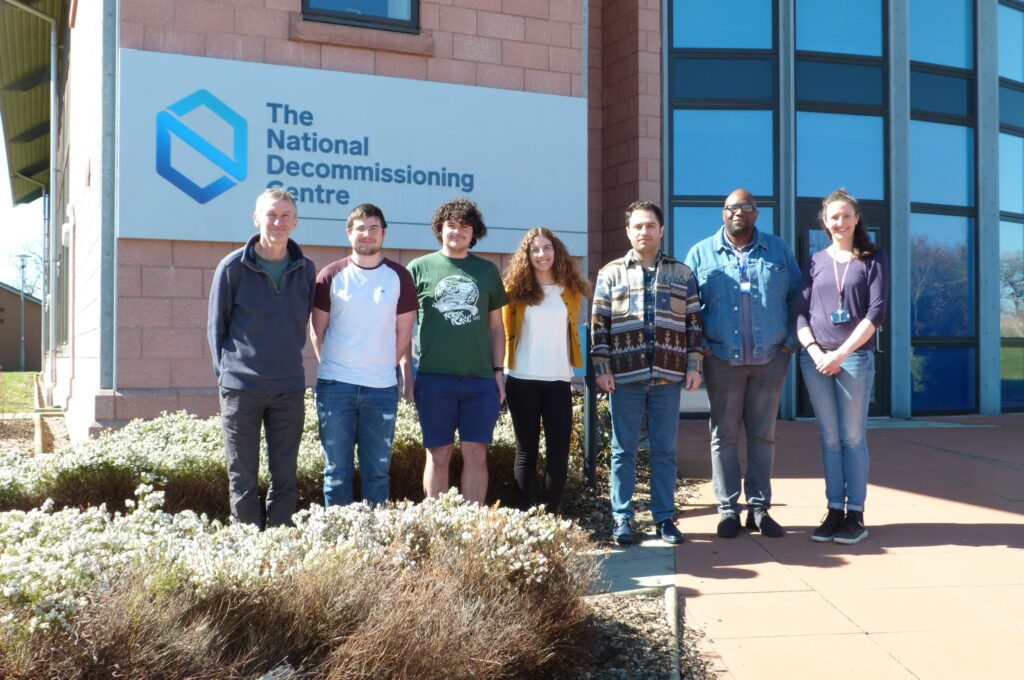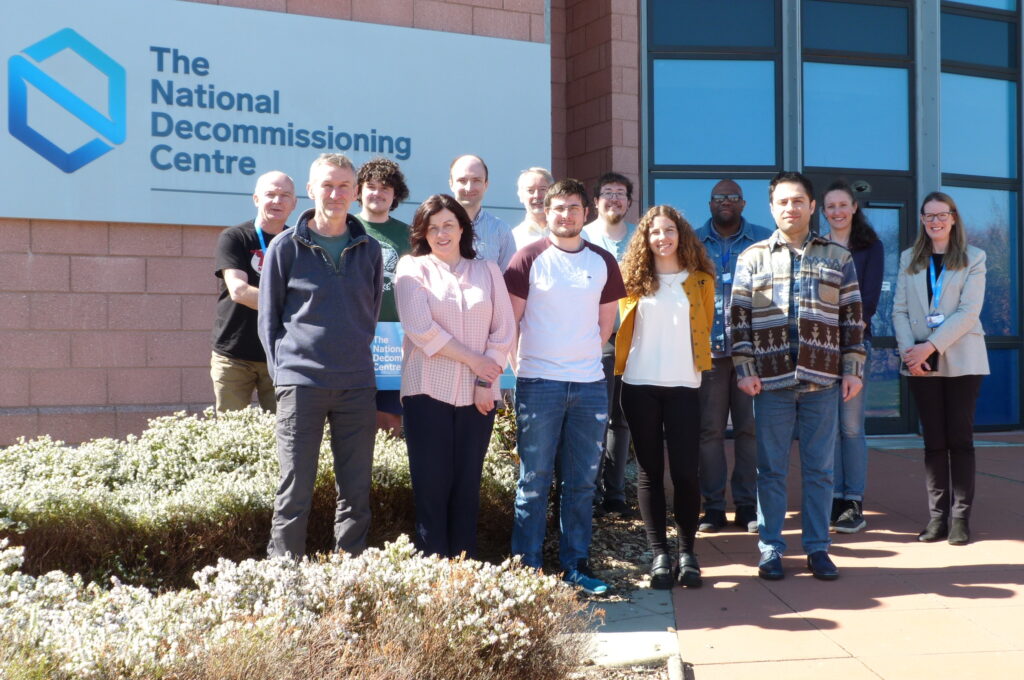Image 1 - L to R - Dr Keith Jackson, Craig MacNamara, Alastair Ramsay, Dr Alicia Terrero Gonzalez, Dr Shahin Jalili, Dr Lawrence Wilcox and Dr Kate Gormley. Image 2 - new researchers with NDC core team members.
News
The National Decommissioning Centre has strengthened its team with a series of new recruits with a range of expertise spanning engineering, data, offshore structures, biological sciences and computing as well as marketing and communications.
Dr Shahin Jalili, Dr Kate Gormley and Dr Lawrence Wilcox are working on the Data for Net Zero (D4NZ) project, one of seven projects in the Net Zero Technology Transition Programme (NZTTP) to help transform the North Sea energy system, with a focus on decarbonising decommissioning, decision making, and asset reuse and repurposing.
PhD students Alastair Ramsay and Craig MacNamara join a collaboration focused on developing new offshore wind technologies including design optimisation and environmental concerns with Offshore Renewable Energy (ORE) Catapult.
Dr Keith Jackson returns to the NDC to work on phase two of the underwater laser cutting project with Claxton Engineering, an innovative technology which will bring cost efficiencies as well as environmental benefits to the decommissioning sector.
Dr Alicia Terrero Gonzalez boosts the strength of the team working with the NDC’s real-time simulator which allows trialling and de-risking of new marine based technologies in a 300-degree visually immersive environment.
Rahul Baburajan joined as a research assistant in late 2022, and is developing, using artificial intelligence, an executive risk and assurance dashboard for decision makers. This work is part of a larger portfolio of projects in partnership with the National Decommissioning Authority.
Catherine Shanks also joins the NDC as Marketing and Communications Officer and will focus on promoting the research and development expertise of the hub as well as its positive impact on the energy industry, economy, environment and wider society.
Recruitment to the posts began in late summer last year with the researchers joining the world-leading research and development facility at Newburgh, Aberdeenshire, over the last few months.
These posts join the existing team and brings the cohort of PhD students to 15 with a further 8 research staff.
NDC Director Professor Richard Neilson, said: “I am delighted to welcome our new colleagues to the NDC. Their research will fill knowledge gaps and the talent they bring with them will help us deliver on our key objectives of reducing emissions in decommissioning activities and advancing the energy transition.”
Sam Long, Decom North Sea CEO, commented: “The NDC continues to be a valuable component in the energy sector, bridging the gap between academic capability and industry need. Late life and decommissioning considerations in the oil and gas, nuclear and even renewable sectors is a key step towards Net Zero ambitions that can be overlooked in comparison to greenfield wind, hydrogen and other initiatives. These appointments reflect continued recognition for insightful, science-based decision making in complex matters regarding energy infrastructure. Decom North Sea remains proud to be both a partner and a supporter of work conducted by the NDC team.”
I am delighted to welcome our new colleagues to the NDC. Their research will fill knowledge gaps and the talent they bring with them will help us deliver on our key objectives of reducing emissions in decommissioning activities and advancing the energy transition.
Notes for Editors
| Notes for Editors | Opened in January 2019, the NDC is a partnership between the University of Aberdeen and the Net Zero Technology Centre. It is co-funded by the two organisations drawing on funding from the UK and Scottish Governments. The Centre addresses the proposal within the Aberdeen City Region Deal to leverage the combined capabilities of academia, industry, and other organisations to help create competitive advantage in decommissioning within the global energy sector. While this is still core, the Centre’s work now also includes aspects of the energy transition, in particular the re-purposing and reuse of assets and the decarbonising of operations and simulation of offshore wind energy systems. |
| Published | Monday April 24th, 2023 |


